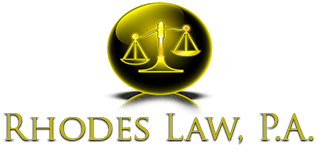Rhodes Law Can Assist With Asset Protection

Asset protection is essential to your family and business' future. It becomes even more important especially when you have a thriving business. You can become a target of creditors if your assets aren't protected. You need a reliable company to ensure all of your assets are protected and no creditor can take them.
Asset Protection Ensures Continued Growth For Your Business
Dealing with creditors can be extremely stressful and overwhelming when your assets aren't protected. Without protection, creditors may have a claim on your assets and this can put your business at risk and affect your bottomline. Asset protection ensures the continued operation of your business without any problems. No need to worry about those creditors claiming part of your business assets because you failed to meet their needs.
With asset protection, your creditors will not have access to valuable business and personal assets. It's important to also work with a trusted company that can provide you with the right asset protection to ensure your business continues to thrive without having to deal with financial problems that can cost you everything or lead to a painful bankruptcy.
Asset Protection Prevents Legal Problems
Clients may file a wrongful claim against you or your business, and this can actually cost you more money. In a worst-case scenario, you can lose your entire assets for a wrongful claim filed against you. You need to protect your assets to safeguard yourself and both your personal and business assets against these lawsuits. The right company can provide you with the right protection that safeguards all types of assets. You need protection to keep assets unavailable to clients and creditors.
What Asset Protection Strategies Can You Take to Protect Yourself, Your Family
and Your Business?
Your first defense would be to get insurance for your cars, business or real estate parties. Insurance can protect you from creditors and wrongful claims from clients. Other forms of asset protection that can protect your family includes investing in retirement accounts, irrevocable life insurance trust or credit shelter trust. The right asset protection depends on your needs and a good financial planner should be able to help you.
Rhodes Law Can Help With Asset Protection
Whether it's for a spouse, children or your business, Rhodes Law can help. Talk to us so our financial team can better assess your assets for any vulnerabilities that might lead to asset loss or bankruptcy. Our goal is to ensure all of our clients maximize their protection from creditors and other threats. We can also help with Medicaid Planning, Trusts, Wills, Estate Planning and Probate Litigation. Talk to us today so we can start protecting your valuable assets and safeguard you from financial threats. We can schedule you for a consultation with our experts.
You might also like




